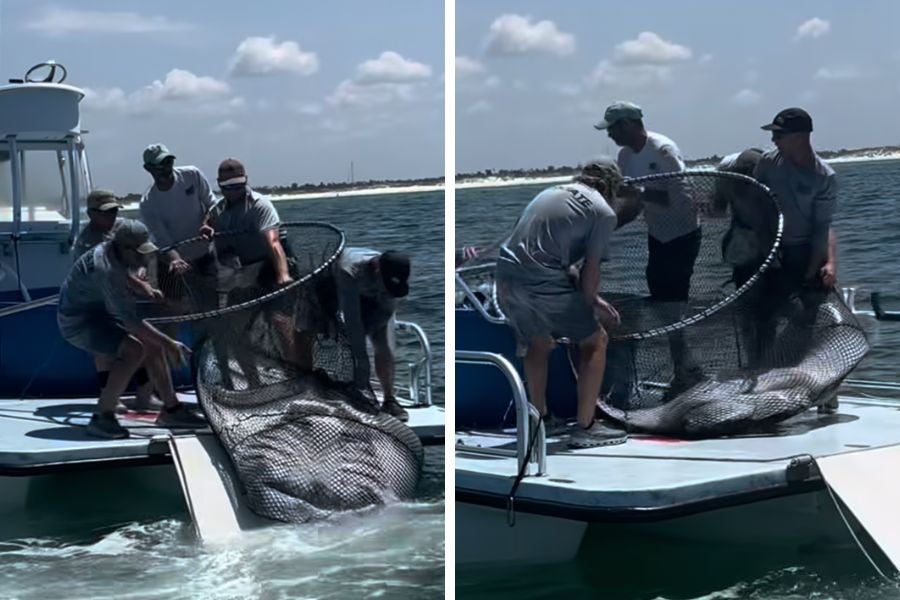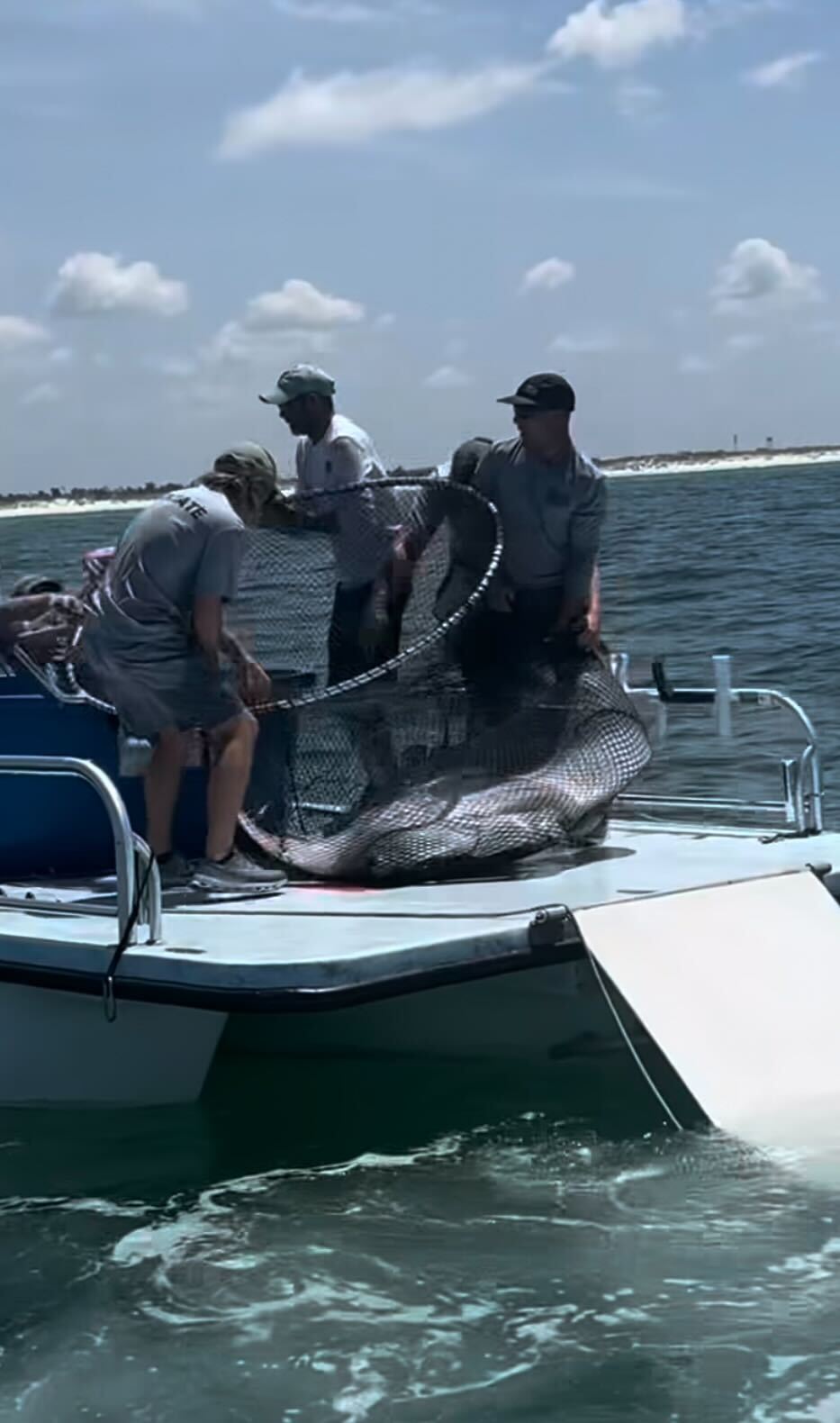A video of the capture of a protected giant manta ray near Florida’s Panama City Beach has sparked outrage over concerns about animal welfare and conservation practices.
Denis Richard, the founder and CEO of Water Planet USA, a dolphin swim tour company, recorded the video Saturday while on his way back to the marina with a group. He captured five people on a white boat struggling to bring up what Richard initially believed was a shark before realizing it was an endangered giant manta ray.
“I was horrified, and everybody on board was really upset,” Richard told Local 10 News.
Richard and the tourists watched in horror as the creature struggled for its life.

“We saw the wings of a manta ray and the manta ray was not hooked through the mouth,” he said. “So they must have snagged him.
After the manta ray was brought onto the boat, it was placed into a small pool on the deck, as a crew member allegedly said, “‘Oh, good, that’s a female.’”
“I would be in distress if I had a hook tied under my arm and people were trying to haul me up on a boat. I mean, he was in pain. That animal was in pain,” Richard said.
Giant oceanic manta rays are protected under the Endangered Species Act and must be released safely if encountered. However, Richard learned that the recent captors seen on video had a permit to harvest the animal under a Marine Special Activity License.

The group in the video is a Marathon-based company that supplies Florida and Caribbean marine life to public aquariums and stores, such as SeaWorld.
Local 10 News confirmed with the Florida Fish and Wildlife Conservation Commission that fishermen did have a permit.
“The Florida Fish and Wildlife Conservation Commission is aware of a video circulating on social media depicting the capture of a manta ray,” a spokesperson said in a statement.

“The take of manta rays is prohibited in state waters. However, the capture of the ray shown in this video was permitted by a Marine Special Activity License that allowed for the take of one manta ray. The Marine Special Activity License Program issues licenses for activities requiring a marine fisheries regulation waiver. Activities that are licensed by this program include, but are not limited to, scientific research, education, exhibition, aquaculture, and more. ”
The Independent has contacted representatives from the group that caught the fish and wildlife officials for comment.


